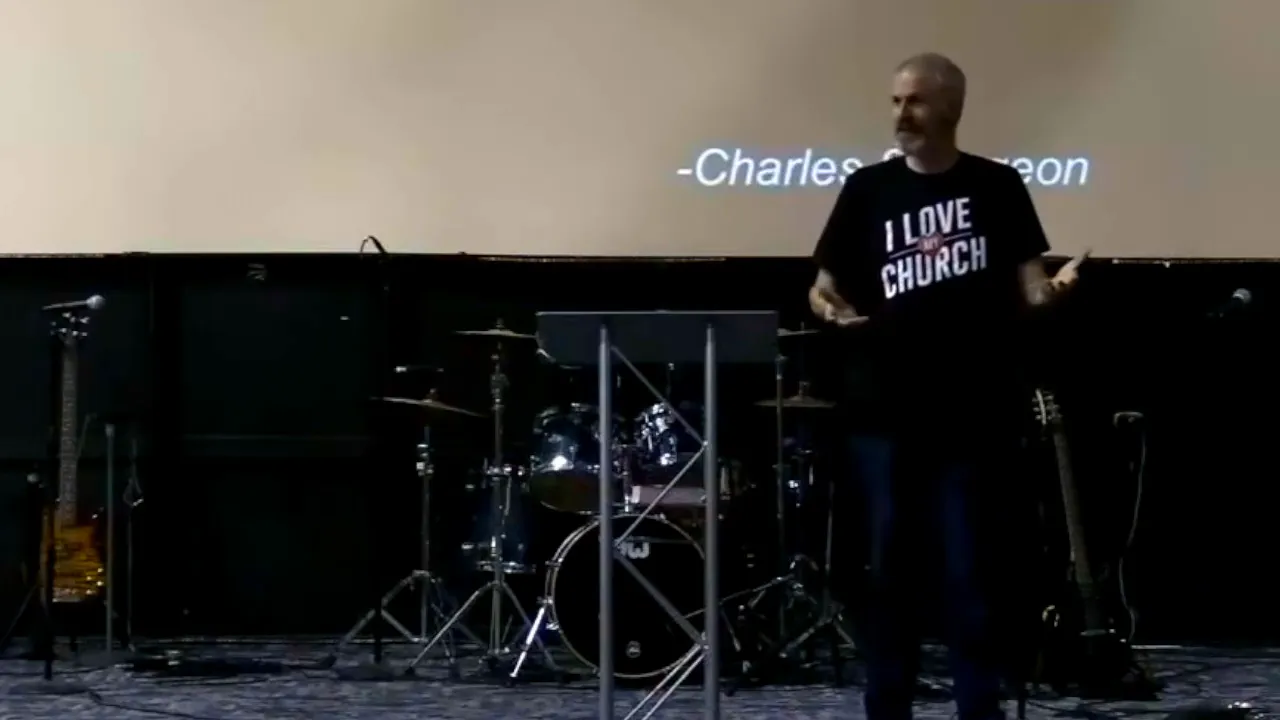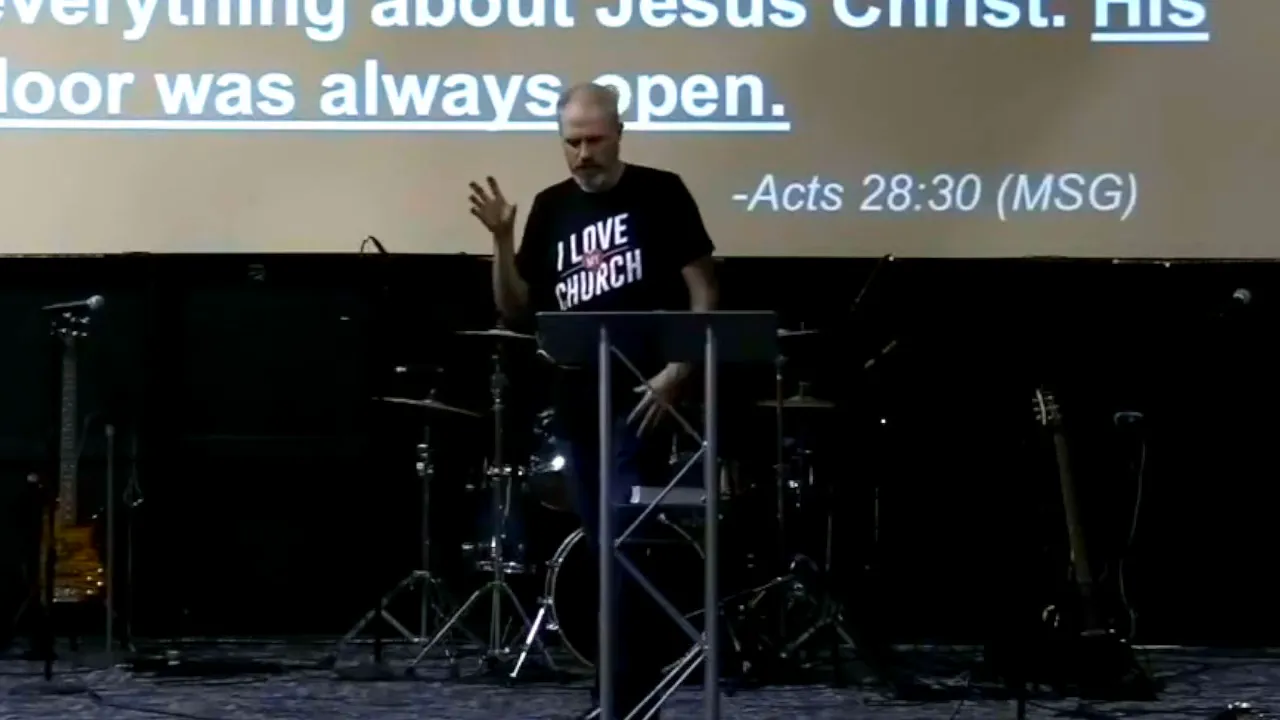Found People Find People: Making Church a Welcoming Space for All
From the humble beginnings of video games to the vibrant growth of the early church, there’s a powerful lesson about passion, hospitality, and invitation that resonates deeply in our lives today. This message, shared by Pastor Clark Frailey of Coffee Creek Church, reminds us how genuine love for something naturally spills over into sharing it with others—and how the simple act of inviting people to “come and see” can transform communities.
The Power of Passion: Sharing What We Love
Passion is contagious. When we find something we truly love, whether it’s a hobby, a sport, or our faith, we naturally want to talk about it. Pastor Clark opened by sharing his lifelong love for video games, starting with the Atari at a friend’s house and eventually moving on to Nintendo and computers. He reminisced about arcades in his elementary school town and how electronics always fascinated him—he loved taking things apart and building computers, a hobby he still pursues today.
His enthusiasm extended to movies, such as the 2010 film Tron Legacy, which reignited his passion for the intersection of technology and storytelling. He even joked about owning a rare set of Mickey Mouse ears that light up like Tron discs, a testament to how deeply this interest runs in his life.
This deep love for something—no matter what it is—creates a natural desire to share. Whether it’s comic books, fishing, sports, quilting, or reading, when we are passionate, it’s effortless to talk endlessly about it, even to those who might not understand. Pastor Clark humorously noted how sometimes people’s eyes glaze over when he starts talking about Tron, but that doesn’t stop him from sharing.
Why Passion Matters in Sharing Faith
When it comes to sharing faith, the same principle applies. Genuine love for Jesus and the church compels us to share that with others. Yet, many find it difficult to talk about church due to past hurts, misunderstandings, or negative experiences. People often carry wounds from previous church encounters—whether from harsh words, misrepresentations of God, or actions by individuals in positions of power—that create barriers to conversation.
Pastor Clark highlighted that these struggles are often mistaken as problems with God, when in reality, they stem from the way others have represented Him. This disconnect can cause people to hesitate or even build invisible walls when church comes up in conversation. Despite this, the early church thrived through hospitality and genuine care, not flashy marketing or political power.
Hospitality: The Heartbeat of the Early Church
The early church’s remarkable growth—from a small group of 12 to millions worldwide—did not rely on modern tools or grand campaigns. Instead, it flourished through simple, winsome invitations and acts of hospitality. Pastor Clark pointed out that the first Christians didn’t twist arms, memorize scripts, or protest in the streets. They simply invited others to “come and see” for themselves.
This invitation was open and non-confrontational. When Philip told Nathaniel about Jesus, Nathaniel expressed skepticism about anything good coming from Nazareth. Philip’s response? “Come and see for yourself.” This approach is a powerful model for how we can engage others—offering an open door rather than a judgmental push.
Hospitality was the tool used to impact a world that lacked broadcast media, slogans, or political influence. The early church’s willingness to feed, love, and care for others, even at great personal risk, overcame obstacles and opened hearts to the gospel.
Found People Find People
One of the most profound truths Pastor Clark shared is that “found people find people.” Once rescued by the love of God, believers are called to become rescuers themselves. This mindset drives the church’s mission: to hold open doors of opportunity for those who feel far from God. It’s not about forcing beliefs but about creating spaces where people can experience God’s love firsthand.
Whether someone is close to faith or far away, the church’s role is to be a welcoming community that reflects God’s mercy and grace. Some people may take years—decades even—to come to faith, and that’s okay. Faith-sharing is a marathon, not a sprint. The key is faithfulness in prayer, hospitality, and consistent invitation.
Practical Invitation: Back to Church Sunday
Pastor Clark encouraged the congregation to start praying about who they might invite to church, especially with an upcoming special event: Back to Church Sunday. This event includes worship, kids’ activities, lunch, and fun features like bounce houses and obstacle courses, designed to create a welcoming atmosphere for families and individuals.
Rather than a generic “come to church” invitation, the challenge is to extend a personal, heartfelt invitation: “Would you sit by me?” This small but significant gesture can make all the difference in helping someone feel welcomed and valued.
Prayer is the foundation of this invitation. By praying for those you want to invite, you prepare both their hearts and yours to be ready for meaningful connection. Hospitality, combined with prayer and personal invitation, forms a powerful on-ramp to faith.
From Confrontation to Connection
Pastor Clark also shared reflections on his early experiences with evangelism, which were often confrontational and met with rejection. Door-to-door approaches preaching doom and judgment made sharing faith feel like a battle, rather than an invitation. Over time, he learned that hospitality and genuine relationship-building were far more effective and sustainable.

Today, the church’s mission is not to pressure or argue but to welcome and open doors. By caring about people as individuals and showing the love of Jesus through actions, believers can create environments where faith conversations happen naturally and winsomely.
Living Out Hospitality: The Example of Paul
The book of Acts offers many examples of hospitality as a means of sharing faith. Pastor Clark pointed to Acts 28, where Paul, even under house arrest in Rome, welcomed everyone who came to visit. He used his time to explain everything about Jesus Christ, with his door always open.

This example reminds us that sharing faith doesn’t require global travel or elaborate plans. Opportunities abound in our neighborhoods, homes, workplaces, and schools. Hospitality creates an accessible on-ramp to connect with others and share the gospel in everyday life.
Hospitality as the Hands and Feet of Jesus
Welcoming others and caring for their needs exemplifies the real hands and feet of Jesus. It’s not about having all the answers or delivering perfect sermons but about embodying God’s love through genuine relationships and kindness.
When we love Jesus and our church, sharing that love becomes a natural overflow. We become “a city on a hill” that cannot be hidden, shining God’s light into our communities and inviting others to experience His grace.
Bringing Faith to Everyone’s Level
Sharing faith effectively means meeting people where they are. Just as a car enthusiast might simplify complex mechanical explanations for a novice, believers can communicate the message of Jesus in ways that anyone can understand.
No matter our own level of spiritual maturity, we can open doors for others to explore faith at their own pace and understanding. This approach removes barriers and encourages curiosity rather than judgment or confusion.
A Bold Vision for Community Impact
Coffee Creek Church carries a bold vision to share the message that God is for everyone—even when culture tells people otherwise. This vision is rooted in the truth that God sent His Son so that whoever believes in Him will have eternal life. It’s a message of hope, love, and pursuit that the church is passionate about spreading.
By embracing hospitality, prayer, and personal invitation, believers can dismantle misconceptions and open doors for transformation. The mission is clear: found people find people, and through us, God’s love reaches farther than ever before.
Conclusion: The Call to Share and Welcome
When we truly love something, whether it’s a hobby, a passion, or our faith, sharing it becomes second nature. For Christians, this means sharing Jesus and the church not through pressure or argument but through hospitality, open doors, and heartfelt invitations.
Our role is to be welcoming, winsome, and faithful—to open doors for others to come and see for themselves. This is the heart of the early church, the example set by Paul, and the vision that drives Coffee Creek Church today.
So, who will you invite? Who in your life needs a welcoming space to explore faith? Begin by praying for them and inviting them to sit beside you. Let’s be a community that reflects God’s love and makes church a place where all are truly welcome.
